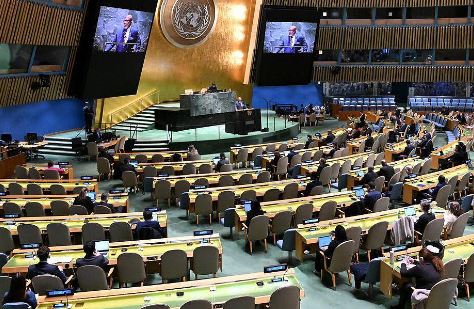UNGA Political Declaration: a global commitment to fight antimicrobial resistance (AMR)

date: 15/10/2024
A growing global health threat
AMR remains one of the most pressing health threats, responsible for approximately 1.3 million deaths globally each year, including 35,000 deaths in the EU/EEA. If left unchecked, the annual death toll in the EU/EEA could reach 390,000 by 2050. The economic impact is also severe, with AMR costing the EU/EEA over €11 billion annually.
Despite the scale of the threat, innovation in developing new antimicrobials has lagged behind. The UNGA declaration, which sets targets such as reducing global AMR-related deaths by 10% by 2030 and decreasing the use of antibiotics in the agri-food sector, calls for urgent action and increased incentives for research and development (R&D).
At the EU level, AMR is a top public health priority, addressed through measures like targets to reduce antibiotic use in humans and livestock, investing in R&D for new antibiotics, and improving environmental monitoring. The Commission has also launched a campaign to raise AMR awareness among young people, promoting a whole-society approach. The EU advocates for a stronger global One Health response to AMR.
HERA’s role in tackling AMR
As part of its commitment to combating antimicrobial resistance (AMR), HERA has been actively advancing both research and development (R&D) and ensuring the availability of essential medical countermeasures.
Through the EU4Health Programme, HERA has funded several initiatives aimed at accelerating innovation for AMR products in the later stages of development. For example, HERA has allocated €22 million to support the development of the Tuberculosis vaccine MTBVAC, led by Biofabri, and €24 million to develop metagenomic diagnostics, which will allow for faster identification of viral respiratory infections. Additionally, €5 million has been dedicated to developing anti-tuberculosis medicines for children, with the evaluation process for proposals currently underway.
Beyond supporting innovation, HERA is also focused on improving access to newly developed antibiotics. To achieve this, HERA is developing financial incentives, including a multi-country revenue guarantee system. This scheme ensures that participating companies will receive compensation if their sales fall below a certain threshold, while committing to provide antibiotics to Member States within 24 hours of an order.
In addition to these efforts, HERA is exploring the possibility of EU-level joint procurement to facilitate access to antimicrobials across Member States, further strengthening the EU’s preparedness and response to AMR.
Global cooperation and the UNGA Declaration
The UNGA Political Declaration aligns closely with our efforts to combat AMR. HERA collaborates with initiatives like the Global Antibiotic Research and Development Partnership (GARDP), which received €20 million for clinical trials on serious sepsis, paediatric antibiotics, and drug-resistant gonorrhoea. It also supports WHO’s work on updating pathogen priority lists and advancing medical countermeasures.
As AMR grows as a global health threat, HERA’s work and initiatives are vital in driving innovation, securing access to treatments, and ensuring preparedness, further emphasized by the UNGA's call for global action.
